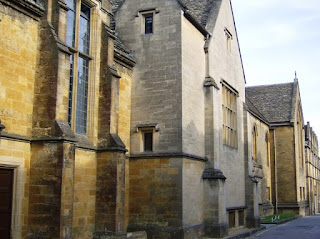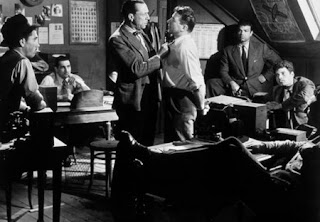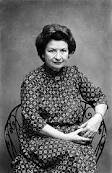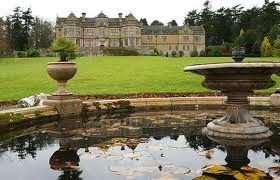Sailing into adventure
I've always loved Erskine Childer's Riddle of the sands. It's a smashing adventure story in the style of John Buchan, a sort of Swallows and Amazons for grown-ups. The novel opens in Whitehall with a bored minor official at the Foreign Office, Carruthers. With his holiday dreams in tatters Carruthers receives an unexpected invitation from an old acquaintance to go sailing off the coast of Germany. Unable to find anything better to do, and with dreams of a posh yacht, pretty girls, and lots of alcohol, Carruthers sets off to join Davies on his yacht, Dulcibella. Dulcibella turns out to be anything but a posh yacht, she's a down-at-heel boat with a dedicated captain sailing solo, with his dreams of serving in the Royal Navy in ruins.
It soon becomes obvious to Carruthers that it's not for his miniscule sailing knowledge that Davies has contacted him. But when Davies tells a story of adventure involving a British ex-Naval officer working for Germany, and tales of spying and attempted assassination, Carruthers finds it hard to believe, and yet Davies' tale is so compelling......
This is a fantastic tale of spying and warfare. It's often cited as the first true espionage novel. Sailors allegedly love the book because of its enormous use of detail about sailing. To a land-lubber with some knowledge of sailing this can have both positive and negative points. The amount of detail really does make you feel involved in the novel, and present in that cold, wet coastline. It can also be slightly off-putting sometimes however, and overly wordy.
However this is a thrilling tale of derring-do, and a must read for any lover of spy fiction.
There's an odd coda to the tale. The novel, written in 1903, was enormously influential in the lead into the First World War. Written at a time when war with Germany seemed most unlikely, Riddle of the sands, pointed out the problems that lay within the British navy including the lack of a naval reserve and how that could be used to enhance the Royal Navy (very important in the Second World War), and the lack of defence on some parts of the British coastline. It also seems to be most prescient in judging the Kaiser's dreams of empire.
Winston Churchill stated that the improvement of British coastal defences on the East coast was largely due to the points made in Riddle. When I read it, it also reminded me of the preparations that would be made in the next war for D-day, and I think it is probably reasonable to believe that Riddle was indeed responsible for some of the actions in that operation. By D-day though Childers was dead. A man who was fiercely patriotic, and who fought for Britain in the First World War, his Irish heritage meant that post-War, he was engaged with the Irish Republican movement. He and his wife ran guns on their yacht to the Republicans, and he was eventually arrested carrying a gun that he had been given by Michael Collins; a gun he never had any intention of using.
Childers was executed in 1922. His son would become the fourth president of the Irish republic.
It soon becomes obvious to Carruthers that it's not for his miniscule sailing knowledge that Davies has contacted him. But when Davies tells a story of adventure involving a British ex-Naval officer working for Germany, and tales of spying and attempted assassination, Carruthers finds it hard to believe, and yet Davies' tale is so compelling......
This is a fantastic tale of spying and warfare. It's often cited as the first true espionage novel. Sailors allegedly love the book because of its enormous use of detail about sailing. To a land-lubber with some knowledge of sailing this can have both positive and negative points. The amount of detail really does make you feel involved in the novel, and present in that cold, wet coastline. It can also be slightly off-putting sometimes however, and overly wordy.
However this is a thrilling tale of derring-do, and a must read for any lover of spy fiction.
There's an odd coda to the tale. The novel, written in 1903, was enormously influential in the lead into the First World War. Written at a time when war with Germany seemed most unlikely, Riddle of the sands, pointed out the problems that lay within the British navy including the lack of a naval reserve and how that could be used to enhance the Royal Navy (very important in the Second World War), and the lack of defence on some parts of the British coastline. It also seems to be most prescient in judging the Kaiser's dreams of empire.
Winston Churchill stated that the improvement of British coastal defences on the East coast was largely due to the points made in Riddle. When I read it, it also reminded me of the preparations that would be made in the next war for D-day, and I think it is probably reasonable to believe that Riddle was indeed responsible for some of the actions in that operation. By D-day though Childers was dead. A man who was fiercely patriotic, and who fought for Britain in the First World War, his Irish heritage meant that post-War, he was engaged with the Irish Republican movement. He and his wife ran guns on their yacht to the Republicans, and he was eventually arrested carrying a gun that he had been given by Michael Collins; a gun he never had any intention of using.
Childers was executed in 1922. His son would become the fourth president of the Irish republic.






.jpeg)




Comments